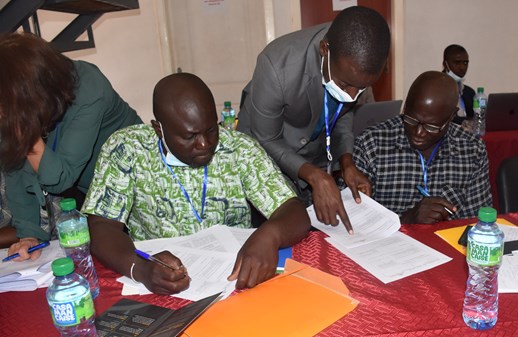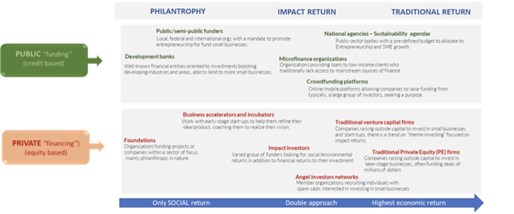New BIO4Africa report highlights funding opportunities

Farmers need capital to invest in bio-based solutions. Here are the programmes that could provide it.
Access to financial support has emerged as the major barrier to deploying bio-based technologies within rural African communities. Despite their wide awareness and acceptance of the technologies, farmers lack capital to invest in new machinery and workforce training.
Following these findings from the BIO4Africa farmer survey, the project partners have gathered an overview of the public and private funding programmes that could support adoption of the most promising technologies in Côte d’Ivoire, Ghana, Senegal and Uganda.
“These funding opportunities are critical to the future BIO4Africa Accelerator programme that will help rural communities replicate our business models and realise the financial benefits of circular, bio-based approaches to agriculture,” says Marina Garcia, head of business development at Sustainable Innovations Europe.
50+ programmes
More than 50 private and public funding programmes have been identified and scanned for the overview, which also includes testimonials from African partners on their usefulness and adoption in the target regions.
The programmes are divided into two categories: impact return, which stipulate an environmental and social return as well as a financial one, and traditional return, where the focus is purely financial.
Philanthropy, equity-free investments and funding opportunities with no expected return are also covered, reflecting the traditional leading role of the public and private sector in upscaling agricultural technologies in Africa.

Analysis of private and public financing schemes. Based on Investment Guide Africa (IGF 2022)
Best chance for funding
For the future participants in the BIO4Africa Accelerator programme, the impact return category is likely to offer the best chances for obtaining funding, Marina Garcia explains.
“One of the main benefits from impact return investments is the guarantee of a more traceable and precise measurement of their social and environmental impact. The investment philosophy is critically focused on seeking a positive financial and social balance in the long term. This is often a cornerstone of national sustainability agendas along with the action plans of development banks, microfinance organisations and crowdfunding platforms.”